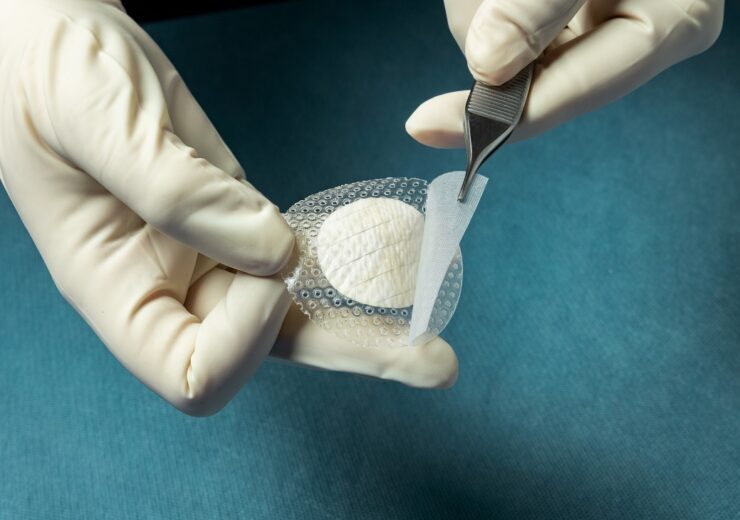MariGen Shield integrates the medical-fish-skin graft with a silicone contact layer and is fenestrated to facilitate sufficient wound drainage, provide an optimal wound management environment and offer adequate wound moisture

Kerecis MariGen Shield with silicone contact layer. (Credit: Business Wire/ Kerecis)
Iceland-based biotechnology company Kerecis has unveiled its new intact fish skin graft product, MariGen Shield, to treat chronic and complex wounds.
Kerecis is engaged in developing products from sustainably sourced fish skin and fatty acids for cellular therapy, tissue regeneration and protection.
MariGen Shield integrates the company’s medical-fish-skin graft with a silicone contact layer to provide advanced treatment for chronic wounds.
It is fenestrated to facilitate sufficient wound drainage, provide an optimal wound management environment and offer adequate wound moisture to enable healing.
The integrated silicone contact layer overlaps the round graft to hold it in place and help protect the granulating wound and the fish-skin graft after a cover dressing is applied on top.
MariGen Shield is offered in 20mm and 30mm round grafts for application into foot wounds, and will speed up the application and removal, said the medical-fish-skin company.
Kerecis founder and CEO Fertram Sigurjonsson said: “This is the first time we have combined our fish skin with another material, in this case, medical-grade silicone.
“Until now, the application of the Kerecis fish-skin graft has required three components: the fish skin itself, a contact layer and a cover dressing to regulate the moisture level on the wound.
“By integrating the contact layer with the fish skin, the application becomes faster and easier and the inventory needs at the healthcare facility simpler.”
Kerecis also announced the results of a clinical study comparing the effectiveness of its fish-skin grafts to a standard of care for diabetic foot ulcers.
The randomised, single-masked, controlled clinical study compared Kerecis’ fish-skin grafts with Fibracol, a collagen alginate therapy, in 102 patients at 16 centres in the US.
In the study, the company’s MariGen healed almost twice as many non-responsive, chronic diabetic foot ulcers than the Fibracol therapy.
The study results concluded that the Kerecis fish-skin grafts offered a more effective and low-cost solution for the treatment of diabetic foot ulcers, compared to alternative treatment.
Earlier this year, Kerecis rolled out two new fish-skin burn products, the GraftGuide Mano and GraftGuide Micro, to treat burns on the hand.
